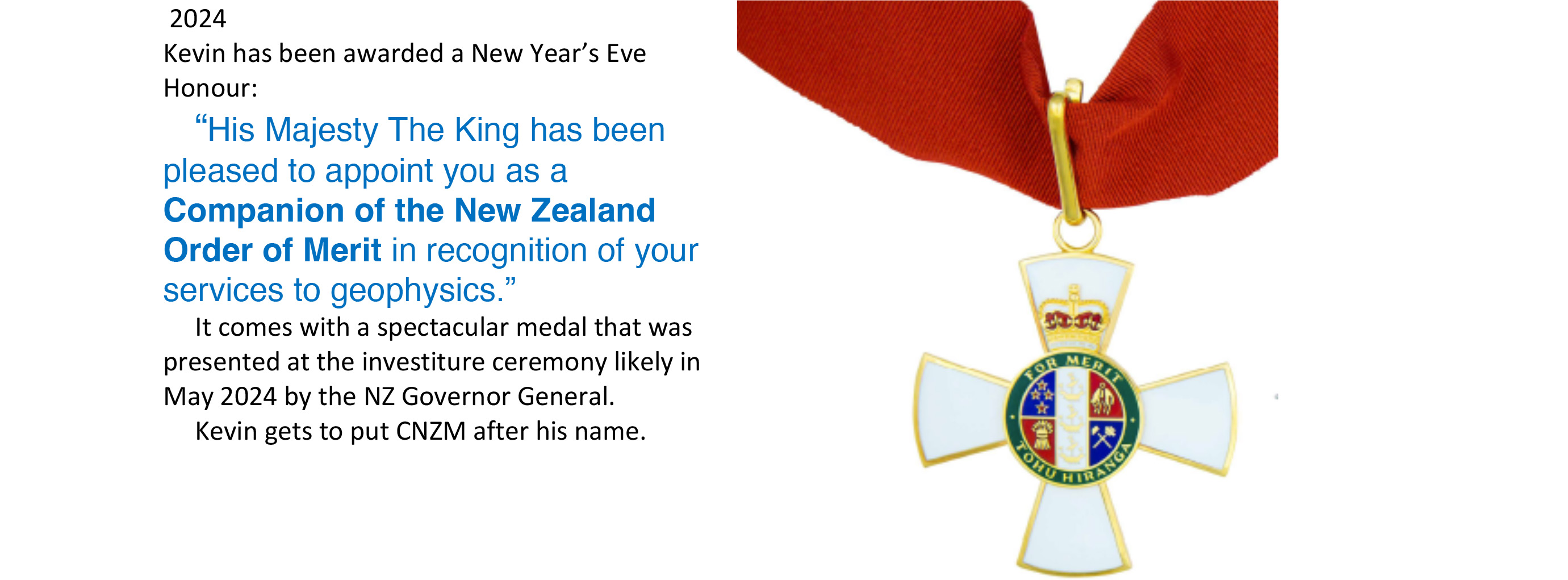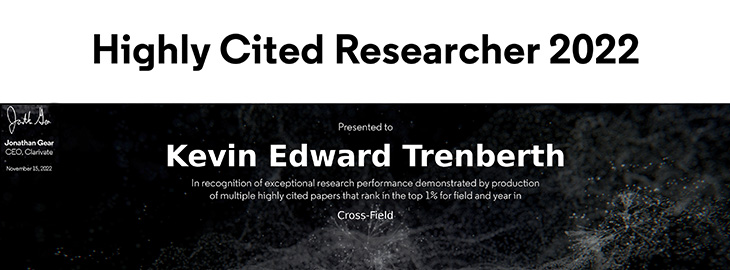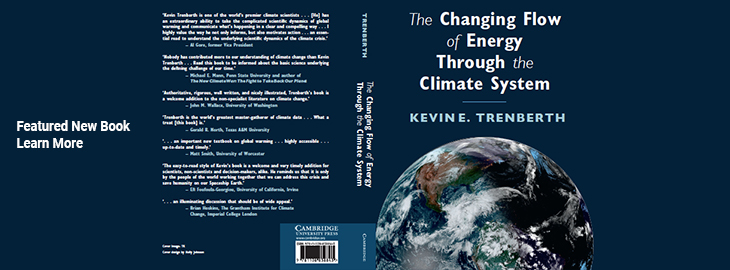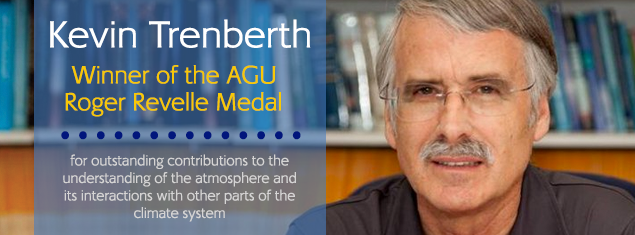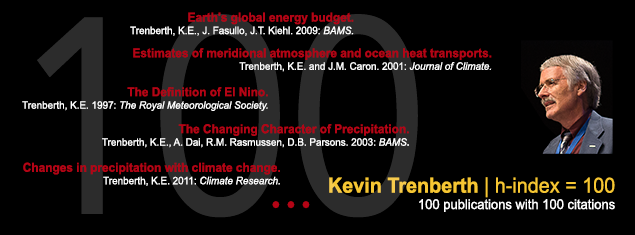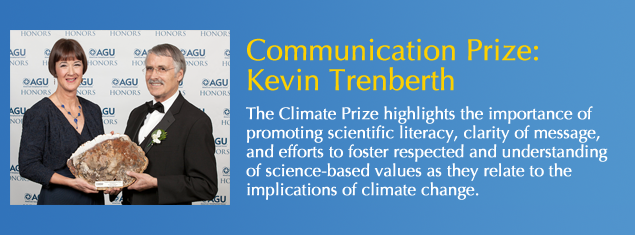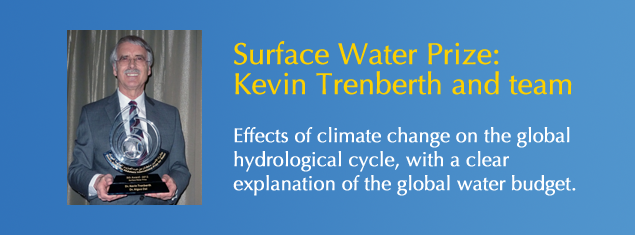Kevin Trenberth
Introduction
Kevin Trenberth is a Distinguished Scholar at the National Center of Atmospheric Research (NCAR) in Boulder and an Honorary Academic in the Department of Physics, Auckland University in Auckland, New Zealand. From New Zealand, he obtained his Sc. D. in meteorology in 1972 from Massachusetts Institute of Technology. He was a lead author of the 1995, 2001 and 2007 Scientific Assessment of Climate Change reports from the Intergovernmental Panel on Climate Change (IPCC), and shared the 2007 Nobel Peace Prize which went to the IPCC. He served from 1999 to 2006 on the Joint Scientific Committee of the World Climate Research Programme (WCRP), and chaired a number of committees for more than 20 years.
He has also served on many U.S. national committees. He is a fellow of the American Meteorological Society (AMS), the American Association for Advancement of Science (AAAS), the American Geophysical Union (AGU), and an honorary fellow of the Royal Society of New Zealand Te Apārangi. In 2000 he received the Jule G. Charney award from the AMS; in 2003 he was given the NCAR Distinguished Achievement Award; in 2013 he was awarded the Prince Sultan Bin Abdulaziz International Prize for Water, and he received the Climate Communication Prize from AGU. In 2017 he was honored with the Roger Revelle medal by AGU. He edited a 788 page book Climate System Modeling, published in 1992, and his new book, also by Cambridge University Press, was published in 2022:
"The changing flow of energy through the climate system". Paperback 978-1-108-97246-8 https://www.amazon.com/Changing-Energy-Through-Climate-System/dp/1108972462
The total (November 2024) is 76 books or book chapters, and 302 journal articles, 23 Tech. Notes, 117 proceedings or preprints, and 87 other articles, plus four videos, 24 articles on The Conversation, and 15 on New Zealand’s Newsroom for a total of 644 publications plus 4 videos, and many other articles/blogs and podcasts. On the Web of Science, there are 59,738 citations and an H index of 106 (106 publications have 106 or more citations). On Google Scholar, there are > 180,800 citations and an H index of 138 (or 91 since 2019).
From 1996 until 2017 he ranked first in the number of highly cited papers published out of all 223,246 published environmental scientists:
Education
-
Sc.D Atmospheric Science/Meteorology
Massachusetts Institute of Technology, 1972 -
B.Sc HONS First Class Mathematics
University of Canterbury, 1966
Research Interests
Kevin Trenberth has been prominent in all aspects of climate variability and climate change research and is a leader in the Intergovernmental Panel on Climate Change assessments and in the World Climate Research Programme. Recently his primary research has focused on the global energy and water cycles and how they are changing.
The environment in which all storms form has changed owing to human activities
Kevin Trenberth, 2011 on attribution of extremes to climate change
His work mainly involves empirical studies and quantitative diagnostic calculations. Trenberth is a primary advocate for the need to develop a climate information system that is an imperative for adaptation to climate change. However, Trenberth has published on many topics and is highly cited. He has evaluated many datasets and been the primary promoter of the need to reanalyze global data into fields in ways that meet climate requirements for continuity and consistency. He has determined the mass of the atmosphere as a fundamental physical quantity and how it varies as water vapor varies, and utilized the conservation constraint to evaluate datasets.
Read more about Kevin's research here
Research Topics
- Interannual variability of climate and El Niño
- Climate change and global warming
- The heat and energy cycles
- The water cycle and atmospheric moisture budget
- The mass of the atmosphere
- Datasets and reanalysis
- The global climate observing system
- Hurricanes and climate change
